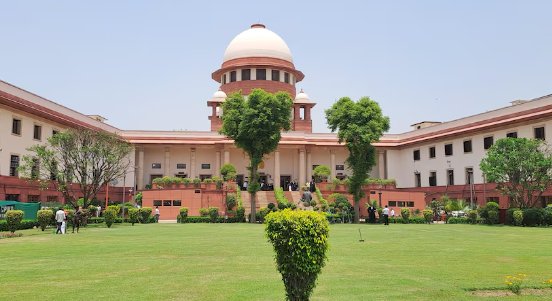Supreme Court Paves the Way for Aligarh Muslim University to Regain Minority Status
In a significant decision, a seven-judge Constitution bench of the Supreme Court, in a 4:3 verdict, overturned a key 1967 judgement regarding the Aligarh Muslim University (AMU). The earlier ruling had removed the minority status of the institution. However, the bench has left the final decision on whether AMU should regain its minority status to a yet-to-be-constituted three-judge bench.
The majority opinion, authored by Chief Justice DY Chandrachud on his last working day, concluded that an institution’s incorporation by a statute does not necessarily strip it of its minority character. Chief Justice Chandrachud, along with Justices Sanjiv Khanna, JB Pardiwala, and Manoj Misra, ruled that it is essential to trace AMU’s genesis to determine its minority status. They argued that AMU, founded in 1875 as the Muhammadan Anglo-Oriental College and later converted into a university in 1920, was indeed established by members of the minority community.
The dissenting opinion came from Justices Surya Kant, Dipankar Datta, and SC Sharma. Justice Datta emphasized that AMU should not be considered a minority institution, while Justice Sharma noted that while a minority community should control its institutions, these should still offer secular educational options.
The dispute revolves around Article 30 of the Constitution, which allows religious and linguistic minorities to establish and manage educational institutions. Initially, AMU enjoyed minority status. However, a 1967 five-judge bench in the S Azeez Basha versus Union of India case ruled that AMU, being a central university, could not claim minority status.
The case gained prominence after the 1981 amendment to the AMU Act, which aimed to restore its minority status. Critics, including Solicitor General Tushar Mehta, have argued that due to substantial government funding—over ₹5,000 crore between 2019 and 2023—the institution lost its minority character. However, supporters believe AMU has retained its foundational character, which is rooted in serving the educational needs of the Muslim community while remaining inclusive.
Following the verdict, the Aligarh Muslim University Teachers’ Association (AMUTA) welcomed the Supreme Court’s decision. In a statement, AMUTA Secretary Dr. Obaid Siddiqui praised the judgement for reaffirming AMU’s unique identity and its commitment to both the Muslim community and the broader society.
Professor Faizan Mustafa, a constitutional law expert and former registrar of AMU, expressed satisfaction with the decision, calling it a comprehensive victory for minority rights.
The Supreme Court’s latest decision has paved the way for a renewed examination of AMU’s status, which will now be taken up by a new three-judge bench. The outcome is expected to resolve decades of legal debates surrounding the constitutional status of AMU.
SOURCE : THE HINDU, NDTV
Disclaimer
The views expressed in this article are the author’s own and do not necessarily mirror Islamonweb’s editorial stance.
























Leave A Comment